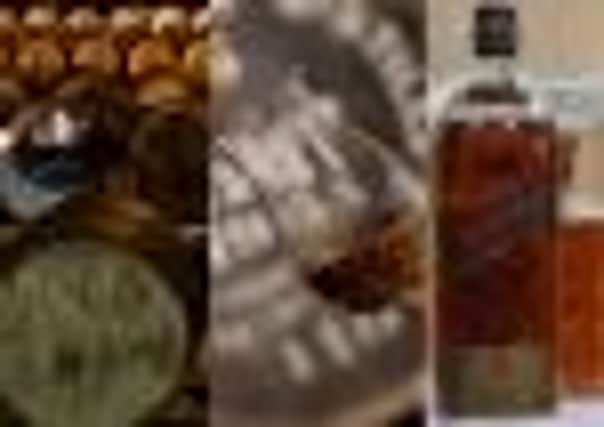A history of Scotch whisky


When the Phylloxera bug devastated the grape harvests across Europe in the late 1800s, an opportunity for Scotch to fill the void left by Brandy couldn’t have come at a more fortuitous time. Renowned as being a refined, sophisticated spirit consumed by the rich and the powerful, French Brandy was the choice of the aristocracy in Europe for centuries.
By comparison, Scotch had a chequered past. Linked to illegal distillation, tax evasion and rebellious clans – it was consumed by the working class and even had a reputation for significantly reducing life expectancy. Warning smoke signals weren’t just for the Native Americans; Scots used them to warn of excise men approaching.
Advertisement
Hide AdAdvertisement
Hide AdBy all accounts, Scotch was anything but refined; distilled from malted barley, but without the aging or consistency in production anywhere near today’s methods. However this was all to change in the early 1800s with two equally important and significant developments, which gave Scotland an opportunity to change its most widely consumed spirit’s prospects.
In 1823 the Excise Act was passed by the UK government and for the first time it was made advantageous to legally produce whisky, thus creating structure whilst all but removing the illicit trade. Secondly, in 1826 a production method to distil whisky from cereals other than malt barley i.e. grain whisky was invented. This was crucial as grain whisky was much lighter and consistent; grocers and merchants discovered that mixing, or blending, created a much more palatable spirit.
The British Empire was at its height in the late 19th and early 20th century, with an estimated 400 million people under Britain’s rule globally. Trade routes to far and distant lands were being created from industrial ports like Glasgow, Leith in Edinburgh and London; goods from around the world were arriving in our ports and finest produce being exported. Merchants and Grocers like John Dewar, William Grant and Johnny Walker (recognise any of those names by any chance?) saw the opportunity to fill the void left by Brandy, very quickly they became brand names around the world and the provenance behind “fine old Scotch”.
Even throughout the US prohibition, despite volumes of counterfeit whisky, the demand for the genuine article was still huge. Atlantic facing Scotch distilleries in Campbelltown made a killing. Whisky merchants were more than happy turn a blind eye to any questions of morality in selling the (locally) illicit sprit and ensure that deliveries were made. And when the prohibition ended? Well Joseph Kennedy, father of later US President John F. Kennedy, made a pretty penny selling even more Dewar’s Blended Whisky as a legal agent – a dynasty or what!
You could say it was perfect timing or just pure coincidental luck, but regardless, Scotch has never looked back.
• Darroch Ramsey is a former whisky brand ambassador and organiser of the Whisky Stramash which will be held in Edinburgh in May this year. For more information and to buy tickets visit thewhiskystramash.com